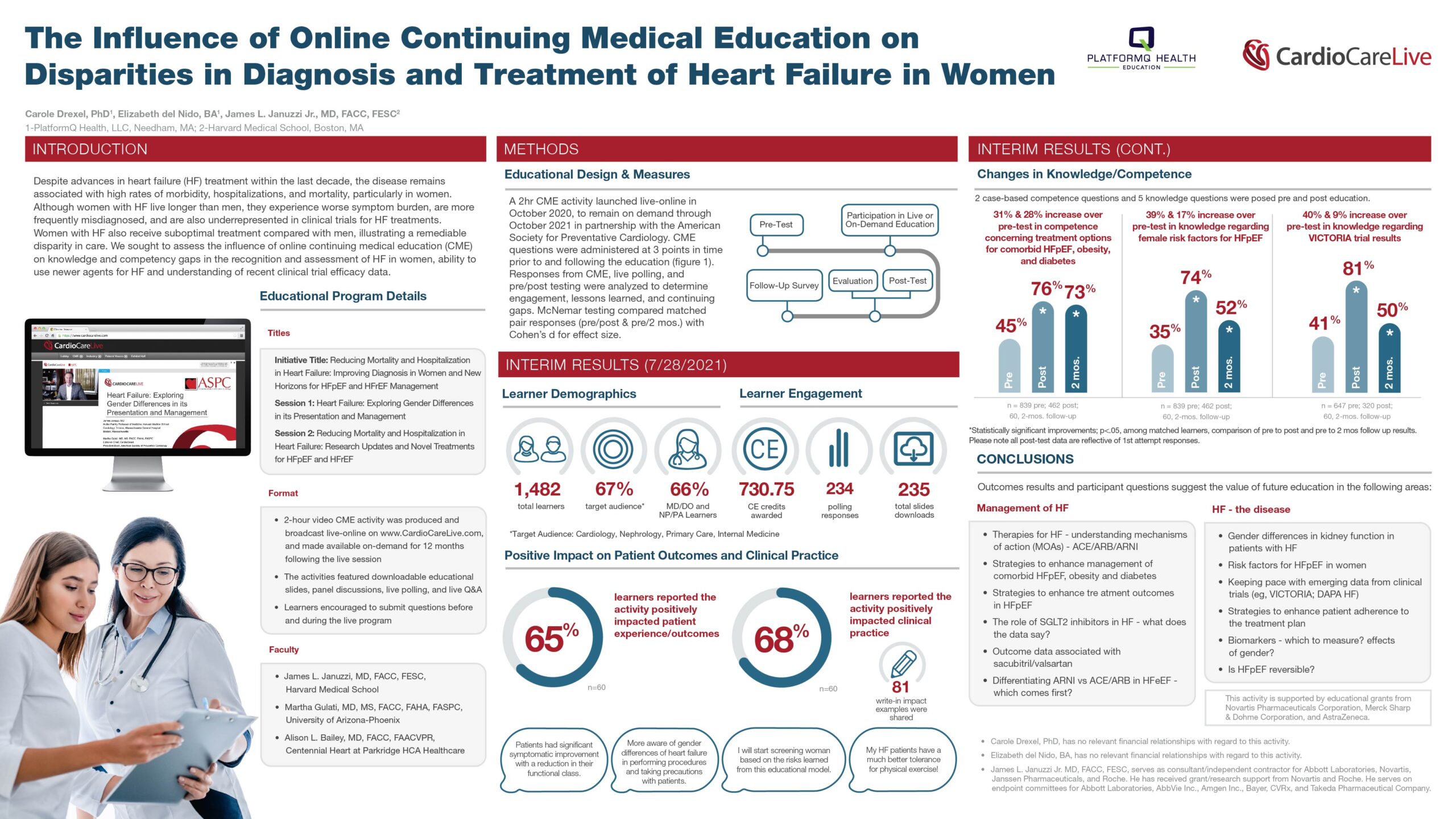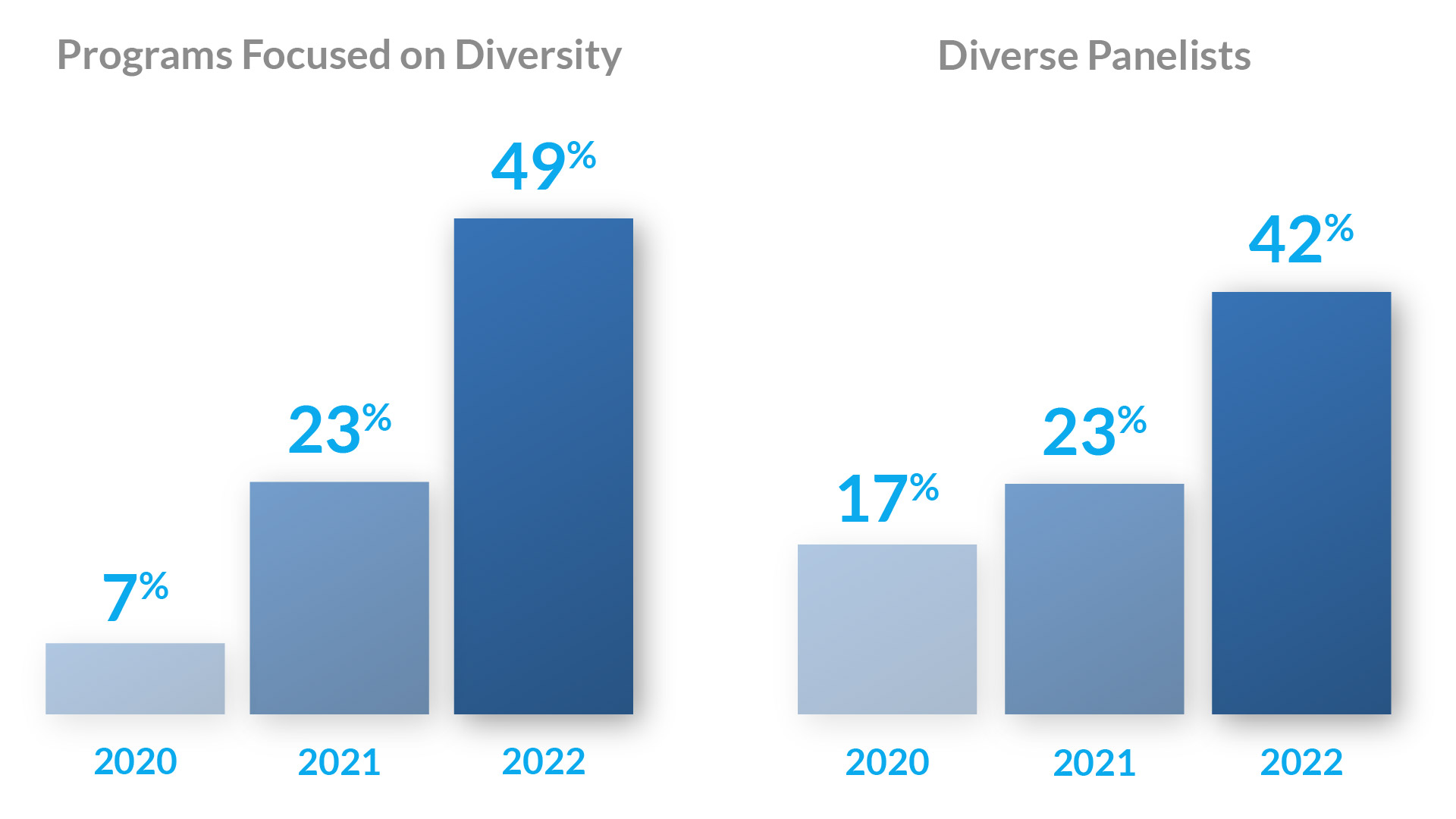Advancing Treatment for All
Improving health equity is a matter of life and death. Case in point: Black, Asian, Native, and Hispanic Americans, women, the elderly, people living in rural areas, and members of the LGBTQ community are vastly underrepresented in clinical trials. If people are not represented in trials, there is no way to ensure that new therapies will be safe and effective for them. That’s why one of our key priorities has been to educate patients and families about the value of clinical research. Through independent medical education we also give healthcare providers the tools to help initiate conversations with their patients about trial opportunities.
Putting ideas into action
PlatformQ Health began partnering with behavioral scientist Dr. Kevin Sansberry to discover ways to put our ideals around equity and inclusion into action to create a better workplace.
“When it comes to DEI, we’re at a stage where we want to create better workforces and environments for everybody so that we can all thrive. I find it really exhilarating and important to be part of that movement.”
Addressing health equity gaps
Partnership with advocacy organizations such as TOUCH – The Black Breast Cancer Alliance furthers our work in using health education to empower patients and providers about issues such as the high rate of mortality and recurrence of breast cancer among Black women.
“Black women have smaller incidences of breast cancer but a 40% higher mortality rate and higher recurrence rate than White women. Our purpose is to advance the science of Black breast cancer…PlatformQ gives us a platform to educate people we wouldn’t be able to reach otherwise.”
Expanding reach
By aligning with centers of excellence like Moffitt Cancer Center, Memorial Sloan Kettering Cancer Center, and Dana-Farber Cancer Institute, we’re delivering trusted educational resources to address issues such as the need for improving equity in clinical practice and research.
“I have a unique role in engaging our clinicians to ensure they understand the cancer burden and community priorities of the larger area we serve, and that informs their clinical practice, ideas for research, and therapeutic clinical trials. Medical education is an essential way to be able to do that.”
DE&I Programs
Recent highlights include a patient-focused session that serves as an extension of the Leukemia & Lymphoma Society’s Myeloma Link program. Black Americans are twice as likely to develop multiple myeloma as any other race or ethnicity, yet they face lower access to care. This outreach partnership is striving to erase those disparities, directly connecting Black patients and caregivers to free, credible myeloma education and support.
Additionally, our CME session about disparities in diagnosis and treatment of heart failure in women attracted 1,482 learners. Developed in partnership with the American Society for Preventive Cardiology, the session resulted in a positive impact on patient outcomes and clinical practice among more than 65% of learners.
Measuring our DE&I Progress
At PlatformQ Health, we are tracking and growing our diverse population in reach, panelists, and content. Recent diverse content-focused programs include:
- A Patient-Provider Education Collaboration to Benefit Underserved Individuals with Non-Hodgkin Lymphoma
- Tackling the Complexities of Timely Diagnosis, Treatment Planning, and Barriers to Care in Hepatocellular Carcinoma
- Enhancing Mental Health Outcomes for Women with Postpartum Depression
We have significantly increased our diverse population of faculty, patients, and panelists since 2020, and continue to track our growth against key performance indicators.





